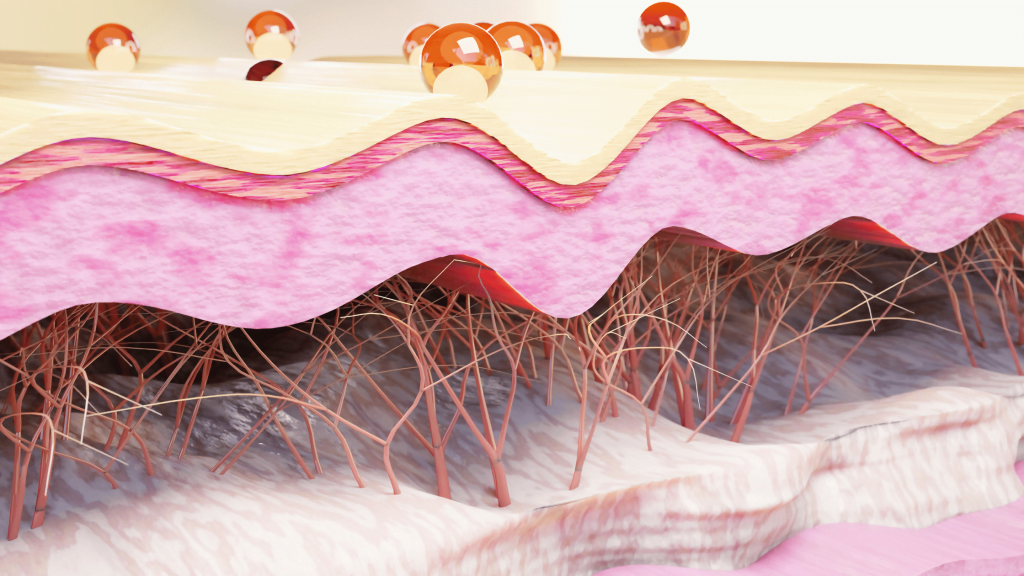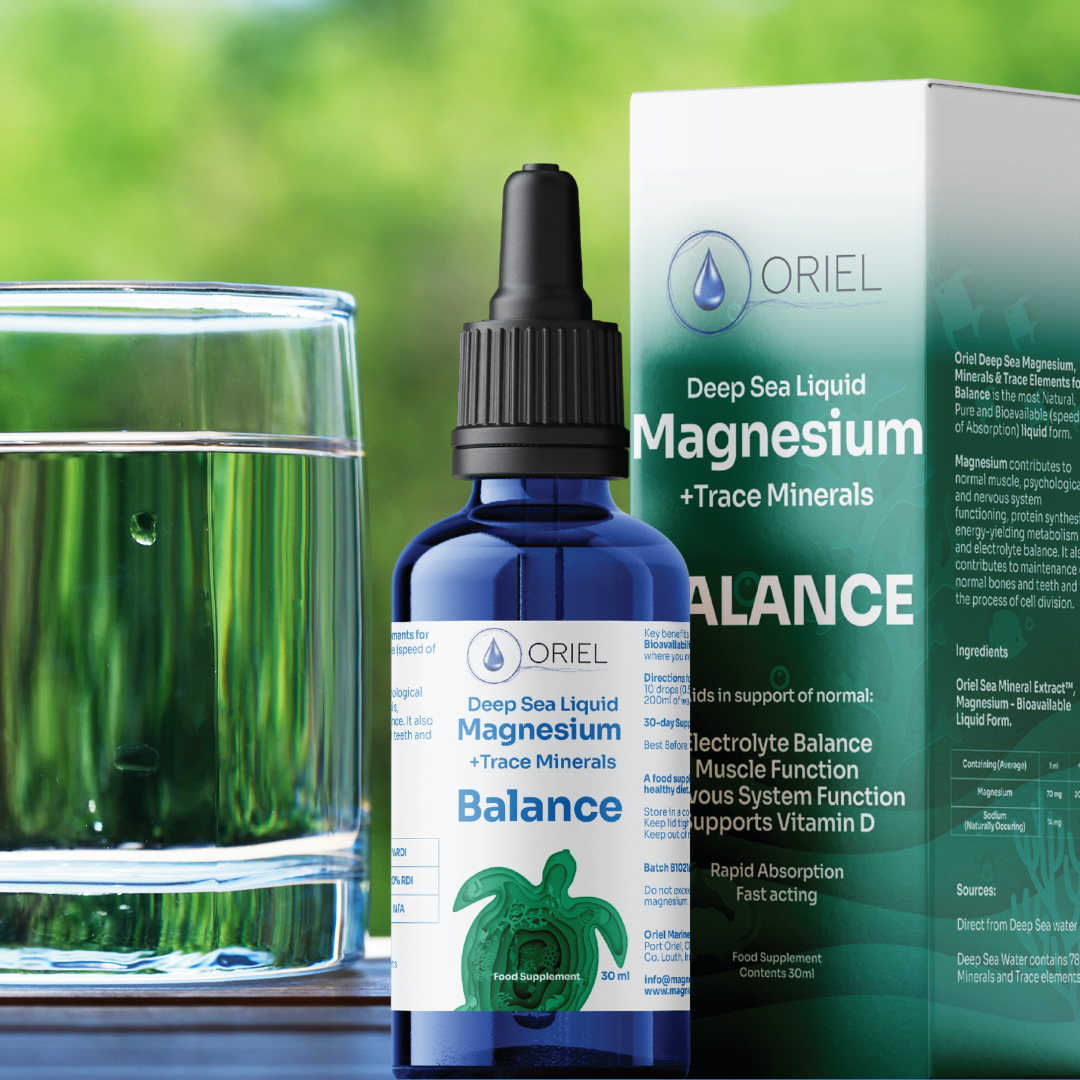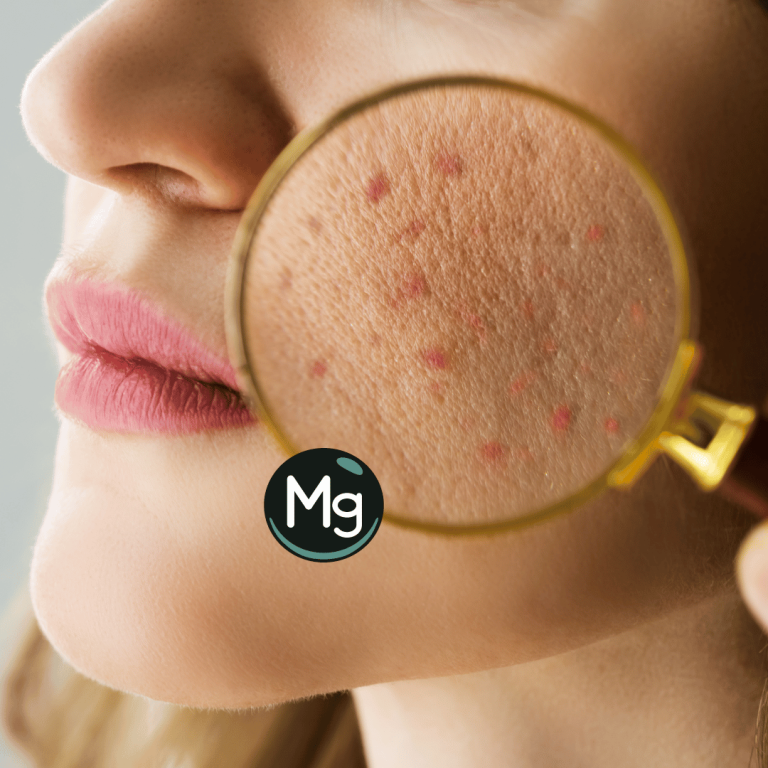
The Importance of Magnesium for Acne-Prone Skin: Myths vs. Facts

Acne is a common skin condition that affects millions of people, especially young adults. It occurs when hair follicles become clogged with oil and dead skin cells, leading to the formation of pimples, blackheads, or whiteheads. The causes of acne can vary, including hormonal changes, genetics, stress, and certain medications. With numerous remedies and products claiming to be the ‘holy grail’ for acne, it’s vital to understand the role of minerals, particularly magnesium, in skin health. In this article, we will demystify the myths surrounding magnesium and acne, spotlighting the Oriel Liquid Magnesium For Acne as a potential ally in your skincare routine.
The Importance of Magnesium for Skin Health
Magnesium is an essential mineral that plays a vital role in maintaining overall skin health. It is involved in various biochemical reactions in the body, including protein synthesis, muscle and nerve function, and blood glucose control. When it comes to skincare, magnesium is crucial for promoting healthy skin cells and supporting the skin’s natural barrier function.
The effect of magnesium deficiency on skin
A deficiency in magnesium can impact skin conditions, potentially leading to inflammation, dryness, and an overall compromised skin barrier. Therefore, ensuring an adequate intake of magnesium is important for maintaining healthy and radiant skin.
The benefits of magnesium for skin
Magnesium offers numerous benefits for the skin, including regulating cellular regeneration, reducing inflammation, and maintaining proper hydration levels. These factors are particularly important for individuals with acne-prone skin, as they can help in preventing and managing breakouts. Learn more about Benefits of Magnesium For Skin.
How magnesium affects acne prone skin?
Magnesium helps in regulating the production of sebum, the oily substance that can clog pores and lead to acne. Additionally, it aids in reducing inflammation and promoting the shedding of dead skin cells, which are common contributors to acne development.
Myths About Magnesium and Acne
Myth 1: Magnesium causes acne
There is a common misconception that magnesium can cause acne. However, scientific evidence does not support this claim. In fact, magnesium possesses anti-inflammatory properties that can help alleviate acne symptoms.
Myth 2: Magnesium aggravates acne-prone skin
Contrary to popular belief, magnesium does not aggravate acne-prone skin. In fact, it can aid in regulating sebum production, which is beneficial for individuals with oily or acne-prone skin.
Myth 3: Magnesium is not essential for skincare
Magnesium is often overlooked in skincare, but it plays a crucial role in maintaining skin health. Its involvement in various cellular processes makes it an essential mineral for promoting clear, healthy skin.
Myth 4: All forms of magnesium are beneficial for acne prone skin
Not all forms of magnesium are equally beneficial for acne-prone skin. The specific type and method of application play a crucial role in determining its effectiveness.
The Facts About Magnesium and Acne
Fact 1: Magnesium deficiency may contribute to acne
Research suggests that a deficiency in magnesium can contribute to the development of acne. Therefore, ensuring an adequate intake of magnesium is important for maintaining healthy skin.
Fact 2: The role of magnesium in regulating hormones and inflammation
Magnesium plays a vital role in regulating hormone levels and reducing inflammation, both of which are closely linked to acne development and severity.
Fact 3: The best forms of magnesium for acne prone skin
Certain forms of magnesium, such as Epsom salt magnesium and magnesium found in aloe vera juice, are particularly beneficial for acne-prone skin due to their anti-inflammatory and exfoliating properties.
Scientific Evidence Supporting Magnesium for Acne-Prone Skin

The anti-inflammatory properties of magnesium
Magnesium exhibits anti-inflammatory properties, which can help reduce redness and swelling associated with acne. This makes it a valuable ingredient in skincare products designed for acne-prone skin.
The role of magnesium in regulating sebum production
Magnesium helps regulate sebum production, which is beneficial for individuals with acne-prone skin. By keeping oil production in check, magnesium can contribute to preventing clogged pores and breakouts.
The impact of magnesium on skin barrier function
Magnesium plays a key role in maintaining the skin’s barrier function, which is essential for protecting against environmental aggressors and retaining moisture. A healthy skin barrier is crucial for preventing acne and promoting overall skin health.
Incorporating Magnesium into Skincare Routine
Skincare also plays a crucial role in managing acne. A proper skincare routine can help control oil production, reduce inflammation, and prevent the buildup of dead skin cells, thus minimising the occurrence of acne breakouts.
Choosing magnesium-rich skincare products
Look for skincare products that contain magnesium, such as serums, moisturisers, and masks specifically formulated for acne-prone skin. These products can help harness the benefits of magnesium for clearer, healthier skin.
DIY magnesium-based skincare recipes
For those who prefer a natural approach, incorporating magnesium into homemade skincare recipes can be beneficial. Ingredients like Epsom salt (magnesium sulphate) and Dead Sea salt (magnesium chloride) can be used to create exfoliating and purifying masks for acne-prone skin.
Dietary sources of magnesium for skin health

In addition to topical applications, consuming magnesium-rich foods such as leafy greens, nuts, seeds, and whole grains can contribute to overall skin health. A well-balanced diet that includes adequate magnesium can support skincare efforts from within.
Oriel Liquid Magnesium For Skincare and Acne
Introducing Oriel Liquid Magnesium for Skincare and Acne, a potent formula comprising concentrated magnesium, as well as up to 80 other minerals and trace elements sourced from deep seawater. Oriel Magnesium Drops help in acne, skin conditions, and overall skin health by providing a highly bioavailable form of magnesium.
Oriel magnesium products can be easily incorporated into existing skincare routines, whether applied directly to the skin in the form of gel or mixed into other skincare products in the form of drops. The magnesium drops can also be used in DIY magnesium-based skincare recipes.
By incorporating just a few drops into your daily water intake, you can experience swift absorption and noticeable improvements in a matter of days. Unlike other forms of magnesium such as chloride, citrate, and sulphate, which are bound and require the body’s breakdown, Oriel holds a distinct advantage. As a free ion liquid, Oriel is swiftly and efficiently absorbed, as confirmed by studies at DCU showing absorption to platelets within just 20 minutes.

Consultation with Dermatologists
Seeking professional advice from dermatologists is crucial for individuals dealing with acne-prone skin. Dermatologists can provide personalised recommendations and treatments tailored to specific skin concerns, including the incorporation of magnesium into skincare routines.
Conclusion
In conclusion, the importance of magnesium for acne-prone skin cannot be overstated. Debunking common myths and unveiling scientific evidence has shed light on the valuable role of magnesium in skincare. By incorporating magnesium into skincare routines, individuals can harness its benefits for clearer, healthier skin. We encourage readers to explore magnesium-based skincare solutions and consider consulting dermatologists for personalised skincare advice.
Frequently Asked Questions
What is the connection between magnesium and acne?
Magnesium plays a role in various bodily processes, including skin health. Research suggests that magnesium deficiency may contribute to the development of acne. Magnesium helps regulate hormonal imbalances, reduce inflammation, and support overall skin health. Additionally, magnesium has been shown to have antimicrobial properties that can help combat acne-causing bacteria.
Can magnesium cause acne?
Yes, magnesium can potentially cause or worsen acne in some individuals. While magnesium is an essential mineral for overall health, an excess of it can disrupt the balance of other minerals in the body, such as calcium and zinc, which are important for skin health. It is important to maintain a balanced intake of magnesium through a healthy diet and to consult a healthcare professional before taking magnesium supplements to avoid potential adverse effects on the skin.
Does magnesium help with hormonal acne?
Yes, magnesium can help with hormonal acne. It helps to control the production of cortisol, a stress hormone that can contribute to hormonal acne. Additionally, magnesium has been shown to have anti-inflammatory properties, which can help reduce the severity of acne breakouts. Ensuring an adequate intake of magnesium through diet or supplements may help improve hormonal acne symptoms for some individuals.




